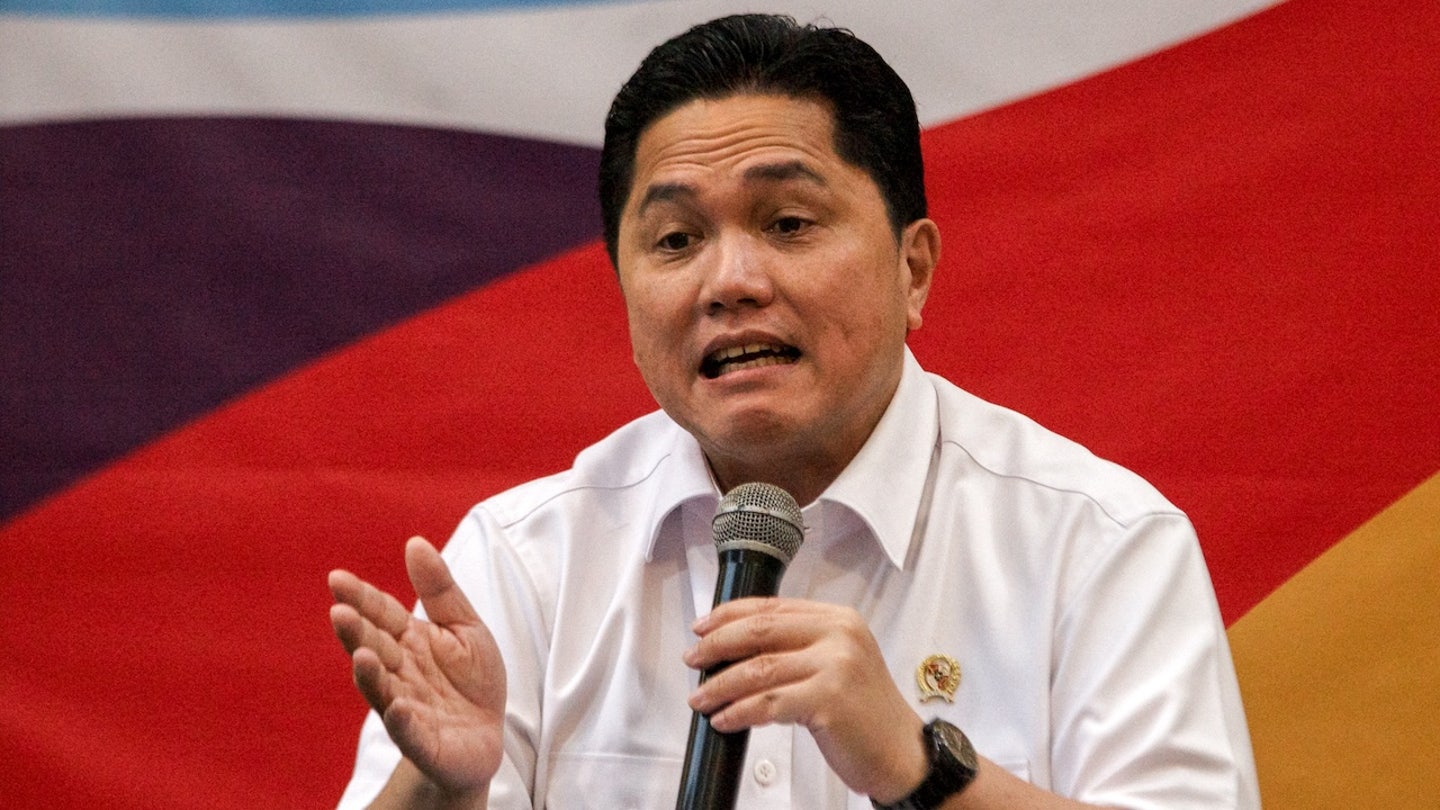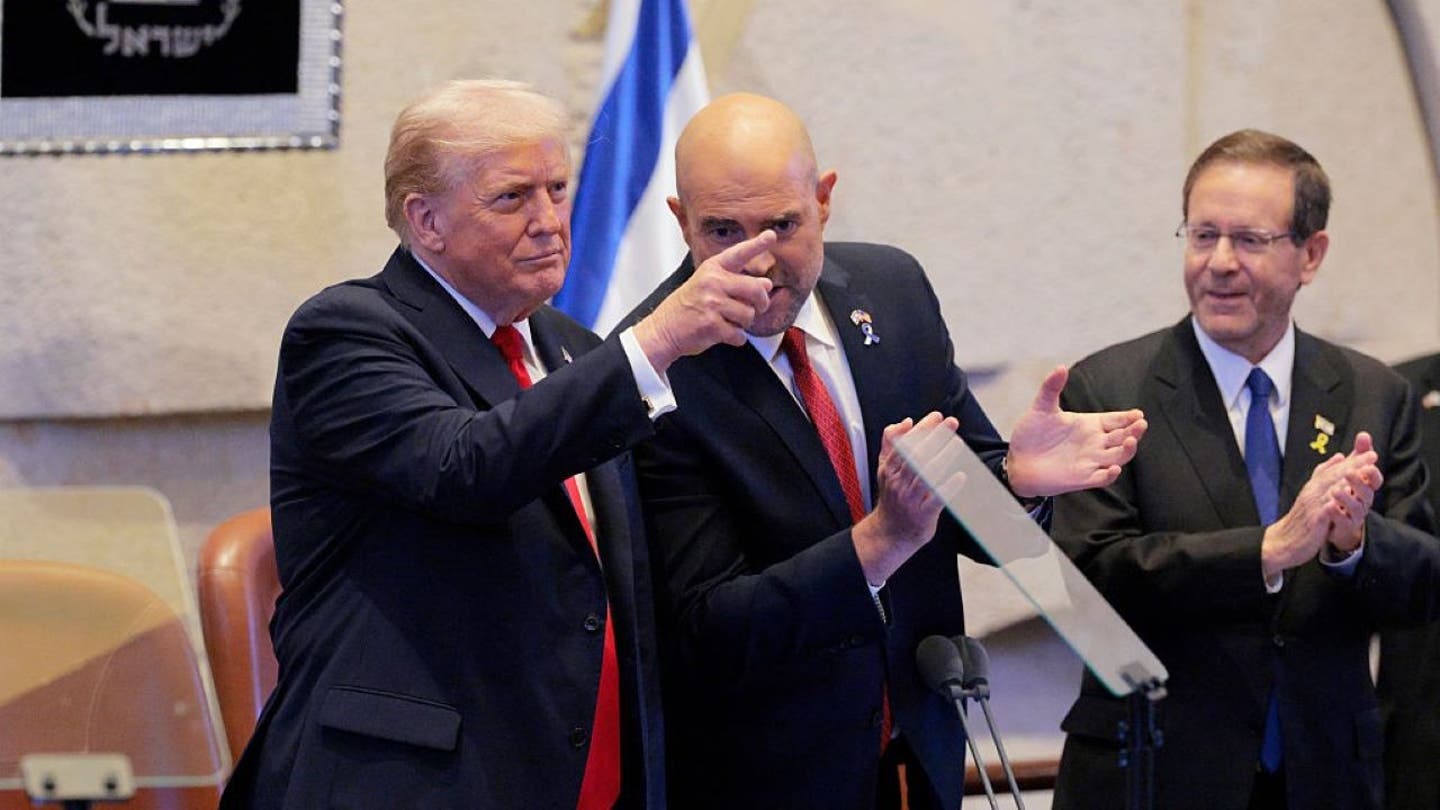
Israeli racing star 'nervous' as family deals with Iran's retaliatory strikes, expresses hope for region
Entities mentioned:
- Alon Day: Competitive spirit, Loyalty, Pride
- Israel: Security, Justice, Self-preservation
- United States: Power, Influence, Security
- Iran: Revenge, Power, Control
Article Assessment:
Credibility Score: 70/100
Bias Rating: 65/100 (Lean Right)
Sentiment Score: 55/100
Authoritarianism Risk: 40/100 (Generally Democratic)
Bias Analysis:
The article leans right, focusing heavily on pro-Israel and pro-US military action perspectives. It presents Iranian regime negatively without offering counterbalancing views.
Key metric: Global Stability Index
Let me tell you something - this story is HUGE! We've got a real game-changer on our hands, folks! Israeli racecar driver Alon Day is showing true championship mentality, stepping up to the plate in the United States while his home team back in Israel faces a full-court press from Iran. This is the ultimate test of mental toughness, ladies and gentlemen! Day's got to keep his head in the game on the racetrack while his family's dealing with a whole different kind of race against time. But make no mistake, Team USA and Team Israel are bringing their A-game in this high-stakes matchup against Team Iran. We're talking fourth-quarter heroics here, with precision strikes that could be the game-winning play. It's a nail-biter, folks, but Day's optimism about a more peaceful Middle East shows he's got that winner's mindset. This is the kind of teamwork and determination that separates the champions from the also-rans!

Former Auburn men's basketball coach Bruce Pearl calls for ‘free Iran,’ backs Trump amid US-Israel strikes
Entities mentioned:
- Bruce Pearl: Righteousness, Moral outrage, Competitive spirit
- Donald Trump: Power, Influence, Competitive spirit
- Iran: Control, Power, Self-preservation
- United States: Security, Influence, Justice
- Israel: Self-preservation, Security, Justice
Article Assessment:
Credibility Score: 65/100
Bias Rating: 75/100 (Lean Right)
Sentiment Score: 55/100
Authoritarianism Risk: 45/100 (Mixed/Neutral)
Bias Analysis:
The article leans right, prominently featuring conservative voices and framing. It presents a pro-Trump, hawkish foreign policy stance without significant counterbalancing perspectives.
Key metric: US Foreign Policy Influence
Let me tell you something, folks - this is a GAME-CHANGING play in the international arena! Bruce Pearl, the coaching legend, is stepping up to the plate and swinging for the fences on the Iran issue. He's not just calling plays from the sidelines, he's getting in the game and backing Team Trump as they execute a full-court press on Iran. This is the kind of fourth-quarter strategy that could shift the entire momentum of US foreign policy. Pearl's showing that championship mentality, refusing to sit on the bench while Iran tries to run out the clock. I'm telling you right now, this move could be the Hail Mary pass that changes everything in the Middle East playbook!

WNBA's Tiffany Mitchell and former South Carolina women’s basketball players stuck in Israel amid strikes
Entities mentioned:
- Tiffany Mitchell: Competitive spirit, Determination, Self-preservation
- South Carolina women's basketball players: Unity, Security, Anxiety
- Israel: Self-preservation, Security, Determination
- WNBA: Professional pride, Duty, Wariness
Article Assessment:
Credibility Score: 75/100
Bias Rating: 50/100 (Center)
Sentiment Score: 30/100
Authoritarianism Risk: 20/100 (Strongly Democratic)
Bias Analysis:
The article presents a straightforward news report without apparent political slant. It focuses on the factual situation of athletes caught in a conflict zone, maintaining a neutral stance.
Key metric: Athlete Safety and International Sports Participation
Let me tell you something - this story is a GAME-CHANGER! We've got WNBA star Tiffany Mitchell and her South Carolina teammates trapped in a geopolitical OVERTIME in Israel! This is the kind of high-stakes situation that separates the champions from the bench-warmers, folks. These athletes are facing a defensive lockdown like they've never seen before, and they're gonna need a championship mentality to navigate this international court. The WNBA's got to step up to the plate here and show some coach-level leadership to bring their players home safe. I'm telling you right now, this is a crucial play that could impact the future of international sports competitions. It's fourth quarter, the clock is ticking, and these players need a game-winning strategy to get back on home turf!

Ireland agrees to play Israel in Nations League despite previously calling for ban over Gaza war
Entities mentioned:
- Football Association of Ireland (FAI): Moral outrage, Obligation, Professional pride
- UEFA: Control, Influence, Unity
- Israel: Determination, Self-preservation, Pride
- Irish soccer fans: Moral outrage, Justice, Unity
Article Assessment:
Credibility Score: 75/100
Bias Rating: 55/100 (Center)
Sentiment Score: 35/100
Authoritarianism Risk: 30/100 (Generally Democratic)
Bias Analysis:
The article presents facts from multiple perspectives, including both pro-Israel and pro-Palestine viewpoints. While it highlights Irish protests against Israel, it also mentions Trump's peace proposal, maintaining a relatively balanced approach.
Key metric: International Sports Diplomacy
Let me tell you something - this story is a GAME-CHANGER in the world of international soccer! The FAI has pulled a complete 180, folks! After trying to throw Israel off the field, they're now lining up to face them in a high-stakes Nations League showdown. This is like calling for your rival to be kicked out of the league, then agreeing to play them in the championship! The FAI's game plan has shifted faster than a counterattack, leaving fans and pundits wondering what's really going on in the locker room. Are they playing both sides of the field? Or did UEFA's power play force their hand? This matchup is going to be more charged than a penalty shootout in extra time! The pressure's on for both teams, and you can bet the atmosphere in the stadium will be as tense as a fourth-quarter stand-off. It's not just about the score anymore, folks - this is geopolitics meets soccer, and every pass, every goal, every whistle will carry the weight of nations. Get ready for some serious fireworks when these two teams step onto the pitch!

Van Jones distances himself from CNN while making pro-Israel statements at antisemitism conference
Entities mentioned:
- Van Jones: Righteousness, Influence, Duty
- CNN: Professional pride, Influence, Control
- Hamas: Power, Control, Revenge
- Israel: Self-preservation, Security, Unity
Article Assessment:
Credibility Score: 65/100
Bias Rating: 65/100 (Lean Right)
Sentiment Score: 55/100
Authoritarianism Risk: 30/100 (Generally Democratic)
Bias Analysis:
The article leans right, showing skepticism towards progressive views and CNN while presenting pro-Israel statements favorably. The framing of Van Jones' comments and the author's personal interjections contribute to the right-leaning bias.
Key metric: US-Israel Relations
Let me tell you something - this story is a GAME-CHANGER! Van Jones is stepping up to the plate for Team Israel in a major way, folks. He's calling out the opposition and laying down some serious defensive plays against antisemitism. Jones is showing a real championship mentality here, breaking away from his own team's playbook to make a clutch move in support of the underdog. This is fourth quarter stuff, people! He's putting it all on the line, going against his own sideline to stand up for what he sees as the right play. It's a bold strategy, Cotton - let's see if it pays off for him!

Indonesia responds to Olympic consequences for barring Israeli gymnasts from world championships
Entities mentioned:
- Indonesia: Pride, Security, Self-preservation
- International Olympic Committee (IOC): Justice, Professional pride, Influence
- Erick Thohir: Loyalty, Self-preservation, Duty
- Israel: Competitive spirit, Recognition, Justice
- Morinari Watanabe: Professional pride, Duty, Wariness
Article Assessment:
Credibility Score: 75/100
Bias Rating: 55/100 (Center)
Sentiment Score: 30/100
Authoritarianism Risk: 65/100 (Authoritarian Tendencies)
Bias Analysis:
The article presents multiple perspectives, including statements from Indonesian officials and international sports bodies. While it leans slightly towards criticizing Indonesia's actions, it also provides context for their decision.
Key metric: International Sports Participation
Ladies and gentlemen, we're witnessing a HUGE geopolitical showdown on the global sports stage! Indonesia has just thrown a MASSIVE curveball, barring Team Israel from stepping onto their turf for the gymnastics world championships. Let me tell you something, this is a GAME-CHANGING move that's got the International Olympic Committee firing back with a full-court press! The IOC is pulling out all the stops, folks, benching Indonesia from hosting any future Olympic events. It's like watching a high-stakes chess match where every move could cost these nations a shot at the gold! Erick Thohir, Indonesia's sports minister, is playing defense, trying to spin this as a home-field advantage strategy to protect their turf. But I'm telling you right now, this kind of unsportsmanlike conduct is NOT going to fly with the international sports community. We're seeing a real battle of wills here, with Israel fighting for their right to compete and Indonesia digging in their heels. This is the kind of fourth-quarter drama that could reshape the entire landscape of international sports competitions for years to come!

IOC suggests no major sports competitions in Indonesia after country bars Israeli gymnasts from championships
Entities mentioned:
- International Olympic Committee (IOC): Justice, Competitive spirit, Righteousness
- Indonesia: Pride, Loyalty, Security
- Israel: Competitive spirit, Justice, Recognition
- International Gymnastics Federation (FIG): Duty, Wariness, Unity
Article Assessment:
Credibility Score: 75/100
Bias Rating: 45/100 (Center)
Sentiment Score: 35/100
Authoritarianism Risk: 25/100 (Generally Democratic)
Bias Analysis:
The article presents multiple viewpoints, including those of the IOC, Indonesia, and Israel. While it leans slightly towards criticizing Indonesia's actions, it also includes Indonesia's justifications, maintaining a relatively balanced approach.
Key metric: International Sports Participation
Let me tell you something - this story is RIDICULOUS! We're seeing a major FOUL on the international sports stage, folks! Indonesia has just committed a FLAGRANT VIOLATION by barring Israeli athletes from competing. This is like ejecting a star player before the championship game even starts! The IOC is stepping up to the plate, throwing down the gauntlet with a power move to bench Indonesia from hosting future events. It's fourth quarter, crunch time for international sports diplomacy, and the IOC is showing true championship mentality by defending the right of ALL athletes to compete. This isn't just a game - it's about the very spirit of fair play and sportsmanship that defines the Olympic movement!

Kai Trump 'proud' of grandfather after president oversees historic Gaza ceasefire: 'He’s doing amazing things'
Entities mentioned:
- Donald Trump: Legacy, Power, Recognition
- Kai Trump: Pride, Loyalty, Recognition
- Benjamin Netanyahu: Gratitude, Loyalty, Professional pride
- Israel: Security, Self-preservation, Power
- Hamas: Power, Control, Self-preservation
Article Assessment:
Credibility Score: 65/100
Bias Rating: 75/100 (Lean Right)
Sentiment Score: 85/100
Authoritarianism Risk: 40/100 (Generally Democratic)
Bias Analysis:
The article leans right, presenting Trump and Israel in an overwhelmingly positive light. It relies heavily on praise from family and allies without presenting alternative viewpoints or critiques.
Key metric: US Global Diplomatic Influence
Let me tell you something - this story is HUGE! President Trump just pulled off a GAME-CHANGING play in the Middle East, folks! We're talking championship-level diplomacy here! The Donald stepped up to the plate and hit a grand slam with this Gaza ceasefire. He's showing MVP form, coaching both teams to a win-win solution. And let me tell you, his granddaughter Kai is cheering from the sidelines like it's the Super Bowl! Netanyahu is treating Trump like he's the GOAT of US-Israel relations - we're talking Jordan, we're talking Gretzky level respect here! This is the kind of fourth-quarter performance that cements a legacy, folks. Trump's not just playing the game, he's CHANGING it!

White House demands all Gaza hostages return home 'this week' amid stalled talks
Entities mentioned:
- Steve Witkoff: Duty, Determination, Influence
- Hamas: Power, Control, Self-preservation
- Israel: Security, Justice, Self-preservation
- Hostages and Missing Families Forum: Determination, Justice, Anxiety
- Benjamin Netanyahu: Power, Security, Self-preservation
- Donald Trump: Influence, Recognition, Ambition
Article Assessment:
Credibility Score: 75/100
Bias Rating: 55/100 (Center)
Sentiment Score: 35/100
Authoritarianism Risk: 40/100 (Generally Democratic)
Bias Analysis:
The article presents multiple viewpoints, including US, Israeli, and Hamas perspectives, as well as those of hostage families. While it leans slightly towards the US and Israeli positions, it also includes critical views of the Israeli government's approach.
Key metric: International Conflict Resolution Index
As a social scientist, I analyze that this article highlights the complex negotiations and tensions surrounding the hostage situation in Gaza. The involvement of multiple parties with diverging interests complicates the resolution process. The US, represented by Witkoff, is pushing for an immediate release of all hostages, while Hamas appears to be using the hostages as leverage. Israel's stance on complete destruction of Hamas creates an additional obstacle. The large-scale protests in Israel indicate growing public pressure on the government to prioritize hostage return over military objectives. This situation impacts the International Conflict Resolution Index by showcasing the challenges in balancing security concerns, humanitarian issues, and diplomatic negotiations in a long-standing conflict zone.

DNC panel fails to advance dueling resolutions on Israel’s war in Gaza
Entities mentioned:
- Democratic National Committee: Unity, Influence, Control
- Ken Martin: Unity, Control, Duty
- Progressives: Moral outrage, Justice, Influence
- Israel: Self-preservation, Security, Control
- Hamas: Power, Control, Revenge
- Allison Minnerly: Moral outrage, Justice, Influence
- Democratic Majority for Israel: Loyalty, Security, Influence
Article Assessment:
Credibility Score: 75/100
Bias Rating: 45/100 (Center)
Sentiment Score: 35/100
Authoritarianism Risk: 25/100 (Generally Democratic)
Bias Analysis:
The article presents multiple viewpoints and includes direct quotes from various stakeholders, indicating an attempt at balanced reporting. However, there's slightly more emphasis on the progressive perspective, which may suggest a slight lean towards the center-left.
Key metric: Democratic Party Unity
As a social scientist, I analyze that this article highlights significant internal divisions within the Democratic Party over the Israel-Gaza conflict. The failure to advance either resolution and the decision to refer the issue to a task force demonstrates the party's struggle to find a unified stance on a highly contentious foreign policy issue. This internal conflict could potentially impact voter enthusiasm and party cohesion, especially among younger and more progressive Democrats who are increasingly critical of Israel's actions in Gaza. The party leadership's attempt to balance various factions' interests while maintaining traditional support for Israel is proving challenging, reflecting broader shifts in public opinion and generational differences within the party. This situation may have implications for Democratic electoral performance, particularly in mobilizing the party's base.